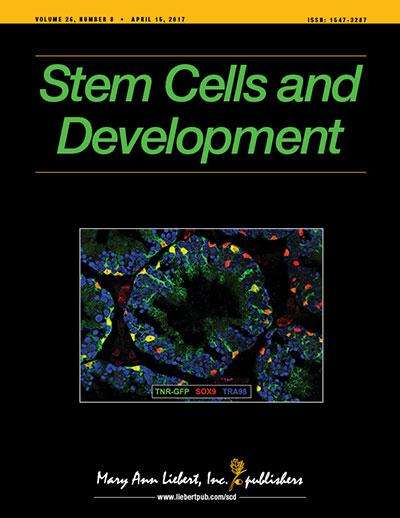Credit: Mary Ann Liebert, Inc., publishers
On diagnosis of acute myeloid leukemia, the mesenchymal stem cells (MSCs) in bone marrow often show alterations in gene and protein expression, proliferation capacity, and function, but whether these are a cause or result of malignancy is not well understood. A detailed examination of the possible contribution of bone marrow-derived MSCs to leukemic malignancies is presented in an article in Stem Cells and Development.
In the article entitled "Alteration Analysis of Bone Marrow Mesenchymal Stromal Cells from De Novo Acute Myeloid Leukemia Patients at Diagnosis," Laura Desbourdes, Jorge Domenech, and a team of researchers from Francois Rabelais University and University Hospital of Tours (Tours), University Hospital of Poitiers, University of Paris-Sud, University of Rennes and University Hospital of Rennes, and MicroNiT network, France, extensively investigated the characteristics of MSCs isolated from the bone marrow of patients with acute myeloid leukemia at the time of diagnosis. The researchers reported reduced proliferation capacity that correlated with the expression levels of specific genes, and increased rates of cell death (apoptosis) compared to stem cells from healthy controls. They discuss whether the alterations detected appeared to play a special role in the development of leukemia.
"The investigation of the possible role of stromal cells in hematologic malignancy is replete with contradiction. This paper provides a clear description of the changes in stromal cells that are independent of the leukemic diagnosis," says Editor-in-Chief Graham C. Parker, PhD, The Carman and Ann Adams Department of Pediatrics, Wayne State University School of Medicine, Detroit, MI.
More information: Laura Desbourdes et al, Alteration Analysis of Bone Marrow Mesenchymal Stromal Cells from De Novo Acute Myeloid Leukemia Patients at Diagnosis, Stem Cells and Development (2017). DOI: 10.1089/scd.2016.0295
Journal information: Stem Cells and Development
Provided by Mary Ann Liebert, Inc
























